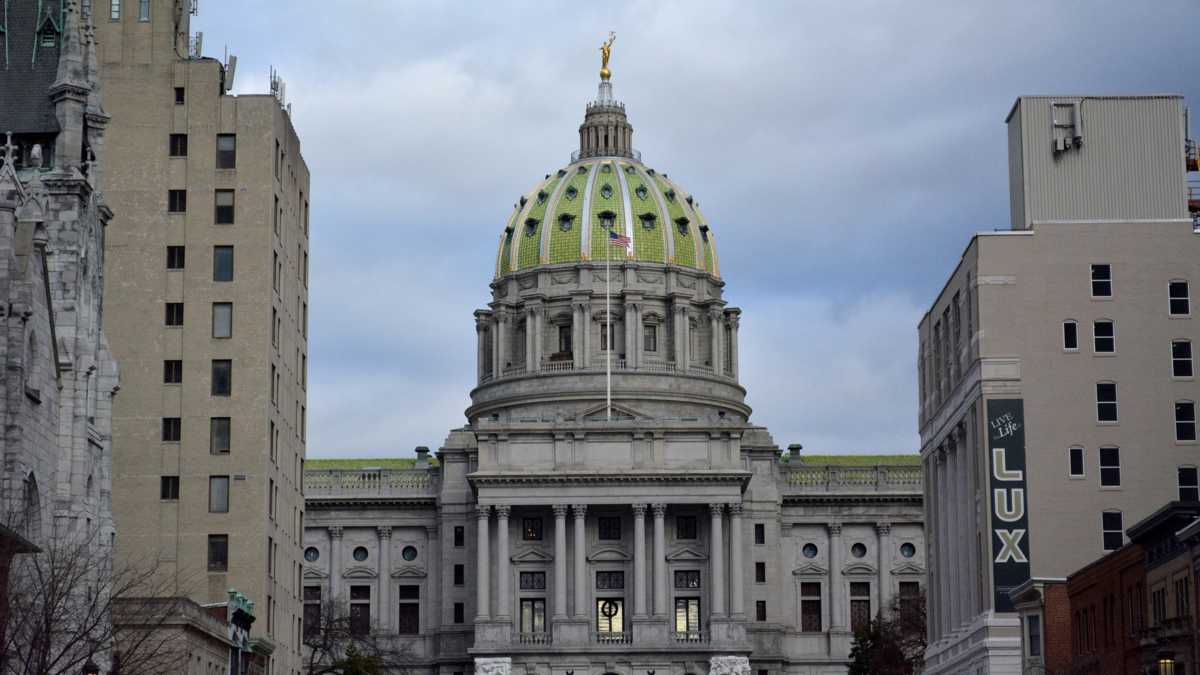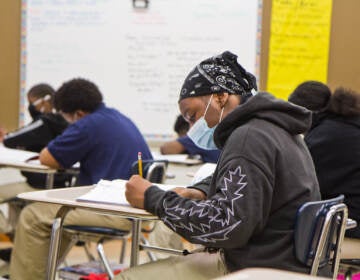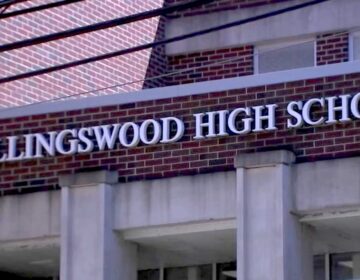Bipartisan panel calls for new formula to divvy up Pa. education aid
Listen
Pa. Capitol Building, Harrisburg. (Kevin McCorry/WHYY)
A bipartisan Pennsylvania commission unanimously recommended a new school funding formula Thursday that would account for several student-weighted factors including poverty.
The proposed formula — which would affect only new spending — calls for Pennsylvania to provide districts with predictable, student-weighted funding that accounts for enrollment changes, poverty, how many students are learning English as a second language, as well as enrollment in charter schools.
The proposed formula would also account for a district’s ability to raise funds locally — keeping in mind a locality’s median household income and how much it taxes property already.
The commission also calls for a formula that accounts for the fact that districts serving large, sparsely-populated rural areas require additional funding because of logistical issues.
Philadelphia school officials lauded the commission’s report.
“The Commission took on a serious challenge, engaged in thoughtful fact-finding and discussion, and emerged with a formula that is good for the future of education in Philadelphia and across the state,” said Superintendent William Hite in an official statement. “We are immensely grateful for their efforts.”
Pennsylvania is one of three states in the nation without a weighted student education formula. The U.S. Department of Education says that Pennsylvania has the largest gap in funding between rich and poor school districts.
“I’m really surprised that the way we fund schools hasn’t ended up in a court case,” said state Sen. Mike Folmer (R-Lancaster) at Thursday’s hearing.
(Actually it has.)
To the chagrin of many education advocates, the commission did not recommend how much a district should spend per-pupil to ensure that students have the necessary supports to meet standards.
The proposed formula does not suggest how large the pie should be, only how it should be sliced.
“The scope of the school funding commission was far too narrow far to solve our school funding crisis,” said Donna Cooper, executive director of Public Citizens for Children and Youth. “And as a result there’s still a lot of work for the legislature to do.”
Commission co-chairman Rep. Mike Vereb (R-Montgomery) said adhering to a narrow focus was crucial in order to reach a consensus.
“One thing that I think was key to our success is keeping out any recommendations by a governor or a caucus about what is the right amount of money for educating our youth,” he said, “in other words not tying in budget negotiations with the ability to come to a final product.”
Many of the commission members acknowledged that the legislature still had much to sort out regarding appropriate levels of school funding, but found the bipartisan nature of the commission’s report to be an encouraging sign.
“Let’s not let the perfect be the enemy of the very, very good here,” said state Sen. Robert Teplitz (D-Dauphin).
Still ‘holding harmless’
For years, the Pennsylvania Legislature has divided state education aid in ways that ensure that districts do not receive less funding than the year before.
This “hold harmless” practice has worked to the advantage of clusters of districts in Western and Northern Pennsylvania whose funding has been maintained despite enrollment declines.
If hold harmless were completely eliminated, the commission says that it would devastate many school districts. Three hundred and twenty of the state’s 500 school districts would receive a combined $1 billion less.
Therefore, the panel says its formula — at least for now — should be applied to new money only.
“We have to address hold harmless in a separate piece of legislation,” said Vereb.
Under the new formula, new funding would not be subject to hold harmless practices.
Bishop Dwayne Royster, executive director of POWER (Philadelphians Organized to Witness, Empower and Rebuild), said he was “cautious, but hopeful” about the panel’s report.
The religiously-affiliated Philadelphia-based group advocates for ending the racial bias that exists in the state’s current funding model.
If the new formula only applies to a relatively small amount of new funding, Royster worries that the change will have minimal effect in undoing systemic inequalities.
Moving forward and other recommendations
The report needs the blessing of the general assembly, as well as Gov. Tom Wolf in order to be implemented.
The Wolf administration wants to restore the education funding that was cut in the past few years from the state’s poorest districts before implementing the new formula.
The 15-member basic education funding commission made its recommendations after a year of study which included more than a dozen public hearings across the Commonwealth, at which members received input from school officials as well as the public.
The commission included six lawmakers from each party, divided equally between the house and senate. It also included three members of the governor’s administration. Gov. Tom Wolf’s appointees recently replaced former Gov. Tom Corbett’s picks.
The panel also made informal recommendations. It asked the general assembly to consider creating a fund to help some districts study the possibility of consolidation, which may achieve savings through economies of scale.
It also calls the legislature to consider reimbursing districts for the cost of school crossing guards.
The commission also acknowledged the fact that school districts may incur additional costs when they serve students who are homeless, in foster care, experience trauma, and are transient — as well as those who are gifted or in career technical programs.
The commission asked the general assembly to consider these student groupings in their funding deliberations, but did not propose weights for these factors.
WHYY is your source for fact-based, in-depth journalism and information. As a nonprofit organization, we rely on financial support from readers like you. Please give today.





